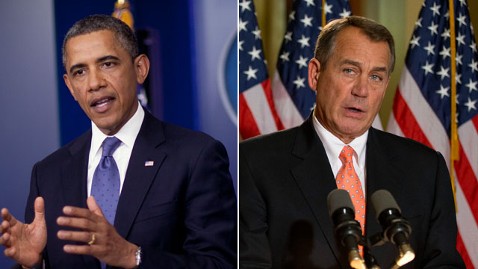LONDON (AP) — Two years after Japan's nuclear plant disaster, an international team of experts said Thursday that residents of areas hit by the highest doses of radiation face an increased cancer risk so small it probably won't be detectable.
In fact, experts calculated that increase at about 1 extra percentage point added to a Japanese infant's lifetime cancer risk.
"The additional risk is quite small and will probably be hidden by the noise of other (cancer) risks like people's lifestyle choices and statistical fluctuations," said Richard Wakeford of the University of Manchester, one of the authors of the report. "It's more important not to start smoking than having been in Fukushima."
The report was issued by the World Health Organization, which asked scientists to study the health effects of the disaster in Fukushima, a rural farming region.
On March 11, 2011, an earthquake and tsunami knocked out the Fukushima plant's power and cooling systems, causing meltdowns in three reactors and spewing radiation into the surrounding air, soil and water. The most exposed populations were directly under the plumes of radiation in the most affected communities in Fukushima, which is about 150 miles (240 kilometers) north of Tokyo.
In the report, the highest increases in risk are for people exposed as babies to radiation in the most heavily affected areas. Normally in Japan, the lifetime risk of developing cancer of an organ is about 41 percent for men and 29 percent for women. The new report said that for infants in the most heavily exposed areas, the radiation from Fukushima would add about 1 percentage point to those numbers.
Experts had been particularly worried about a spike in thyroid cancer, since radioactive iodine released in nuclear accidents is absorbed by the thyroid, especially in children. After the Chernobyl disaster, about 6,000 children exposed to radiation later developed thyroid cancer because many drank contaminated milk after the accident.
In Japan, dairy radiation levels were closely monitored, but children are not big milk drinkers there.
The WHO report estimated that women exposed as infants to the most radiation after the Fukushima accident would have a 70 percent higher chance of getting thyroid cancer in their lifetimes. But thyroid cancer is extremely rare and one of the most treatable cancers when caught early. A woman's normal lifetime risk of developing it is about 0.75 percent. That number would rise by 0.5 under the calculated increase for women who got the highest radiation doses as infants.
Wakeford said the increase may be so small it will probably not be observable.
For people beyond the most directly affected areas of Fukushima, Wakeford said the projected cancer risk from the radiation dropped dramatically. "The risks to everyone else were just infinitesimal."
David Brenner of Columbia University in New York, an expert on radiation-induced cancers, said that although the risk to individuals is tiny outside the most contaminated areas, some cancers might still result, at least in theory. But they'd be too rare to be detectable in overall cancer rates, he said.
Brenner said the numerical risk estimates in the WHO report were not surprising. He also said they should be considered imprecise because of the difficulty in determining risk from low doses of radiation. He was not connected with the WHO report.
Some experts said it was surprising that any increase in cancer was even predicted.
"On the basis of the radiation doses people have received, there is no reason to think there would be an increase in cancer in the next 50 years," said Wade Allison, an emeritus professor of physics at Oxford University, who also had no role in developing the new report. "The very small increase in cancers means that it's even less than the risk of crossing the road," he said.
WHO acknowledged in its report that it relied on some assumptions that may have resulted in an overestimate of the radiation dose in the general population.
Gerry Thomas, a professor of molecular pathology at Imperial College London, accused the United Nations health agency of hyping the cancer risk.
"It's understandable that WHO wants to err on the side of caution, but telling the Japanese about a barely significant personal risk may not be helpful," she said.
Thomas said the WHO report used inflated estimates of radiation doses and didn't properly take into account Japan's quick evacuation of people from Fukushima.
"This will fuel fears in Japan that could be more dangerous than the physical effects of radiation," she said, noting that people living under stress have higher rates of heart problems, suicide and mental illness.
In Japan, Norio Kanno, the chief of Iitate village, in one of the regions hardest hit by the disaster, harshly criticized the WHO report on Japanese public television channel NHK, describing it as "totally hypothetical."
Many people who remain in Fukushima still fear long-term health risks from the radiation, and some refuse to let their children play outside or eat locally grown food.
Some restrictions have been lifted on a 12-mile (20-kilometer) zone around the nuclear plant. But large sections of land in the area remain off-limits. Many residents aren't expected to be able to return to their homes for years.
Kanno accused the report's authors of exaggerating the cancer risk and stoking fear among residents.
"I'm enraged," he said.
___
Mari Yamaguchi in Tokyo and AP Science Writer Malcolm Ritter in New York contributed to this report.
__
Online:
WHO report: http://bit.ly/YDCXcb











